When you talk about male horses, you will often hear them referred to as either stallions or geldings. And those even lightly in the know are aware of the distinction: stallions are able to breed, whereas geldings have been neutered.
Just as with dogs and cats, there are a variety of reasons for gelding horses and a good amount of science behind the whole process. There are many advantages and some are more widely thought of than others when it comes to having a horse gelded.
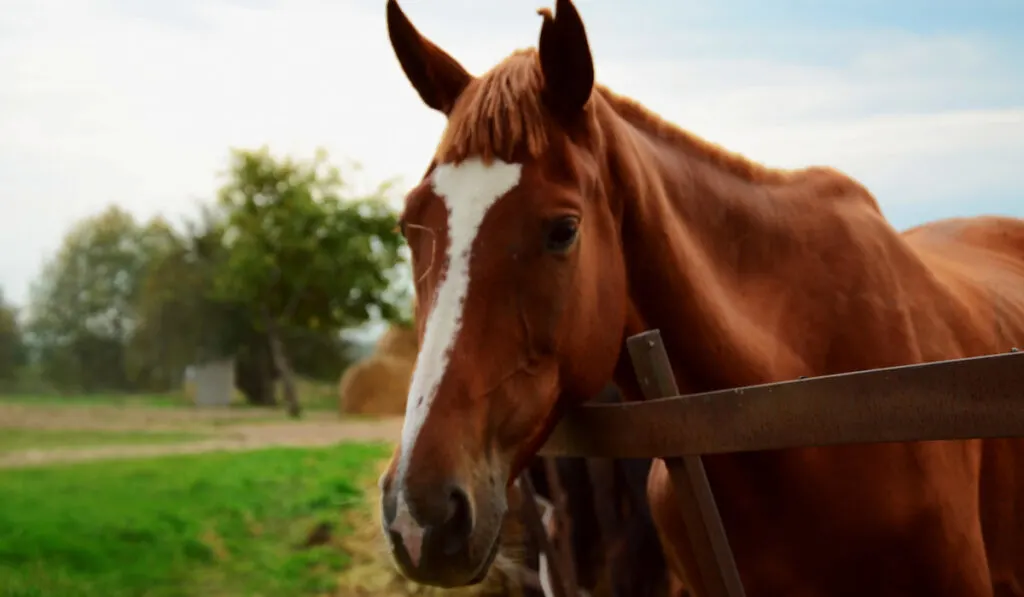
But first, let’s look at some background facts on the gelding process – just what it is and how a horse goes through it.
Table of Contents
Basic Facts About Gelding Horses
There is no one hard and fast age that all-male horses are castrated, however, veterinarians recommend – and most horses owners agree – on gelding a horse before he turns one year of age. (source)
For a long time, it was common practice to wait up until two years of age, likely as two years is when colt’s began displaying those testosterone-fueled behavioral problems. These days, though, most colts are gelded before their first birthday.
In some horses, the timing of and need for gelding may be accelerated. This is because of a condition called cryptorchidism. (source)
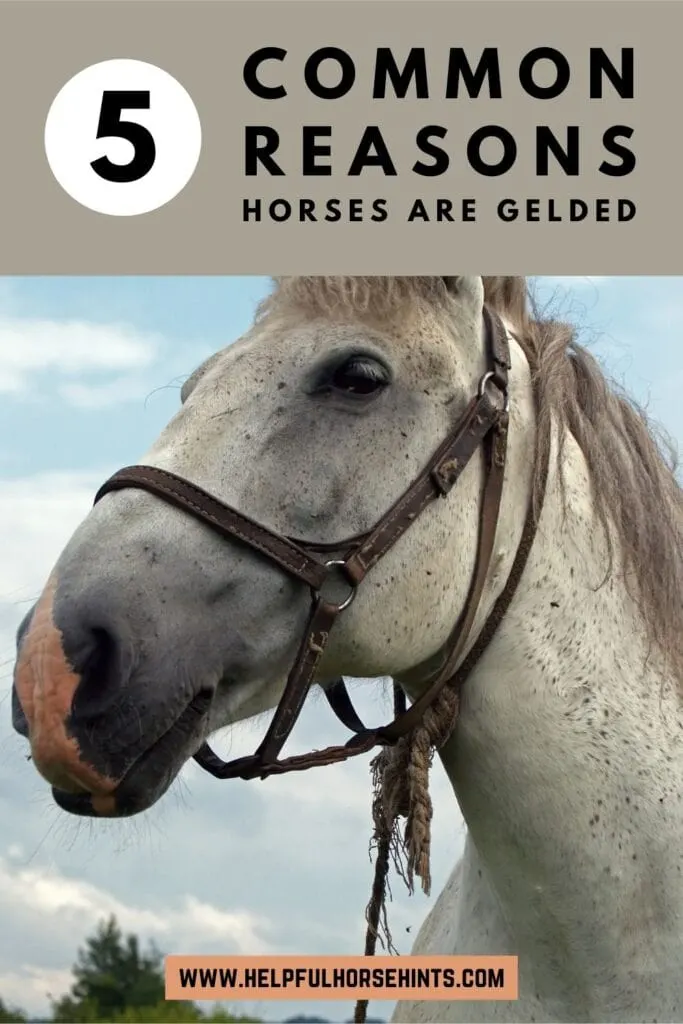
Cryptorchidism In Horses
Cryptorchidism is an instance in which one or both testicles do not descend normally into the scrotum – basically, it is equine undescended testicles.
A horse of any breed may exhibit cryptorchidism, but there is a higher recorded amount of Quarter Horses, Saddlebreds, Percherons, and ponies.
Further, the condition is most likely hereditary and should be treated like a congenital defect. This means if a horse experiences cryptorchidism they should be gelded to avoid passing on the gene.
Although a testicle is undescended, it still will produce male hormones, such as testosterone, meaning they will still likely act out as stallions but will be sterile. Many breed associations do not register cryptorchids.
Considerations Before Scheduling a Gelding Appointment with Your Veterinarian
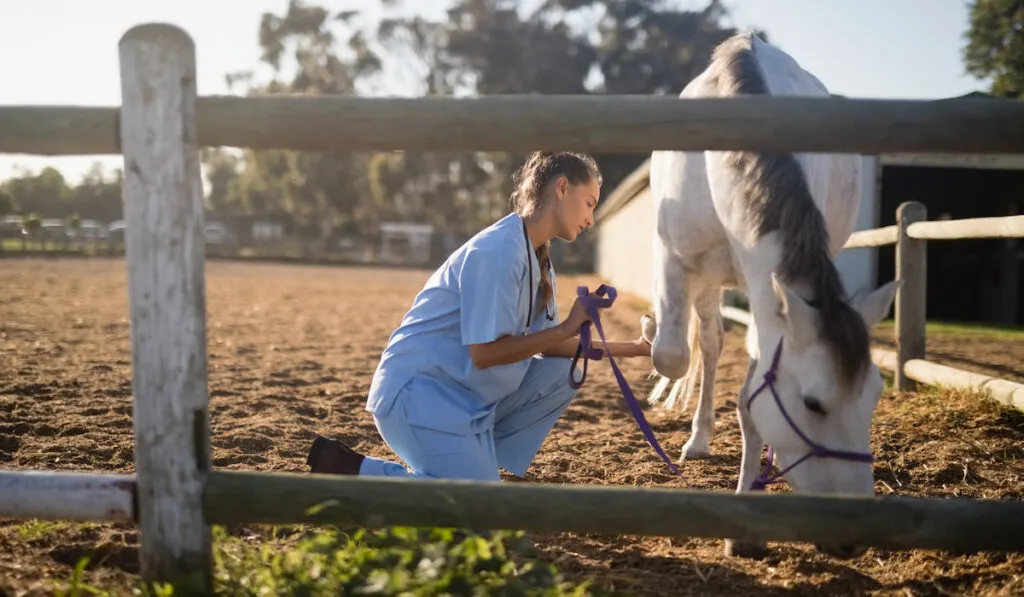
Before gelding a colt, they should be in good health and uninjured, as well as current with all vaccinations and deworming. If the colt is not up to date on immunizations, it is often recommended that they get those shots scheduled and then wait two more weeks before the gelding procedure.
Colts are anesthetized before undergoing the surgery so they feel no pain and aren’t even aware of what is going on. In fact, they generally are comfortably lying on the ground so there is no chance of buckling legs or a need for them to be awake. From there, both testicles are removed.
An incision is made over each testicle through the scrotum and the tissue moved aside. Trained veterinarians carry out a delicate and detailed operation, carefully removing the testicles and leaving behind tissues, muscle, and other internal necessities.
Once both of the testicles have been removed and bleeding out is not a concern, the horse is allowed to come to from its anesthesia and then typically put on stall rest for at least 24 hours.
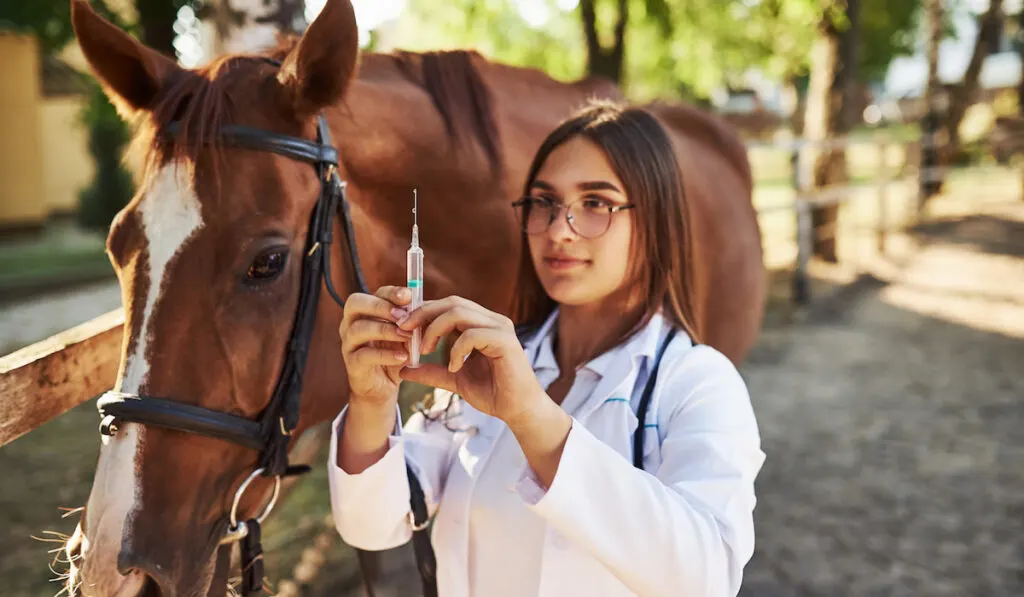
Often the Veterinarian will give the horse a tetanus toxoid booster. This is largely due to the fact that the incision site remains open and can be contaminated as the horse lies down or rolls in his paddock.
They may also receive an NSAIDS (antiinflammatory) right after surgery. Following the mandatory stall rest, you should hand exercise the colt so that swelling is reduced and the muscles do not seize up.
Your veterinarian will likely give you aftercare instructions for your specific horse following the procedure that should be followed to ensure the incision heals well.
Complications of Gelding
These days, gelding complications are rare but they can happen from time to time. The most commonly seen issue is a swollen scrotum, with swelling that can then travel down into the lower hind legs.
This is why most vets recommend in-hand exercise for several days after surgery to help reduce swelling.
Much more uncommon is the condition in which some colts may develop a large wound ring. It sounds terrifying, but from this ring, intestines may poke out from the incision.
Usually, this happens right after the surgery, or at least the same day, though sometimes it may still occur days later. This is considered a true emergency and a veterinarian should be contacted. Again, the chances of your horse having this happen are much lower risk than basic swelling.
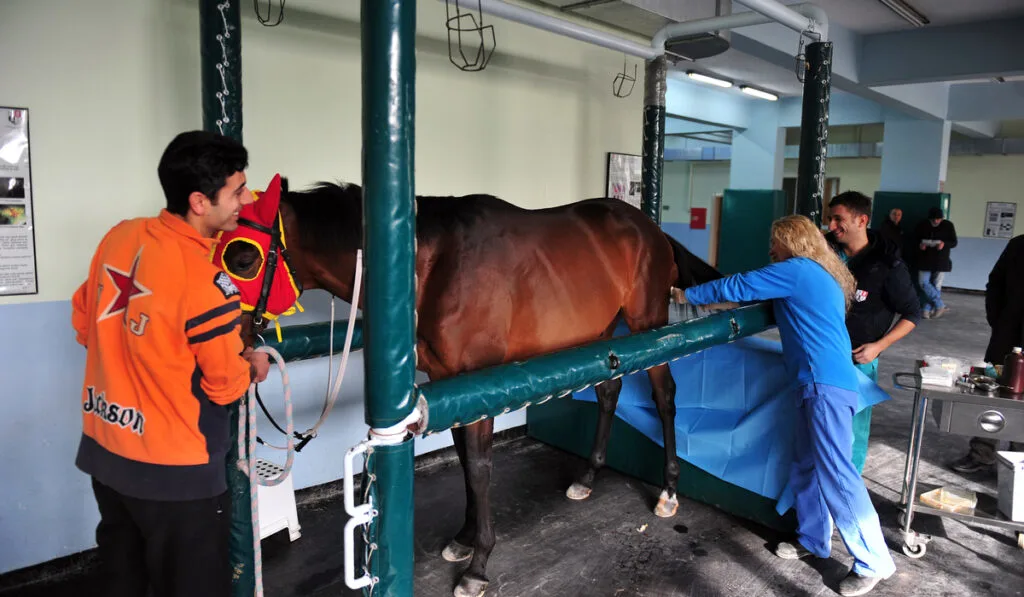
Also, if a colt has undescended testicles, it can be a bit harder for a vet to remove them, so the surgery may take a little longer, though the risk factors remain about the same.
In extreme cases of cryptorchidism, surgery in an equine hospital may be necessary to properly locate each testicle in the horse’s abdominal cavity. In that case, the simple and relatively inexpensive gelding procedure can become quite costly.
5 Reasons Stallions are Gelded
Reason 1: Temperament
Stallions are traditionally known to be aggressive, stubborn and prone to anger. That is all thanks to testosterone-producing testicles.
Testosterone affects a colt’s personality and how his entire adult attitude and personality can develop. A headstrong and wild horse is not generally what most owners look for and so gelding is done to curb this behavior. (source)
Undesirable actions such as rearing, mounting, biting, fighting, trumpeting, etc. are the hallmarks of stallions, but are less commonly displayed in geldings. If you want to have a well-behaved, chill and trainable horse, a colt should be gelded – and preferably before one year of age.
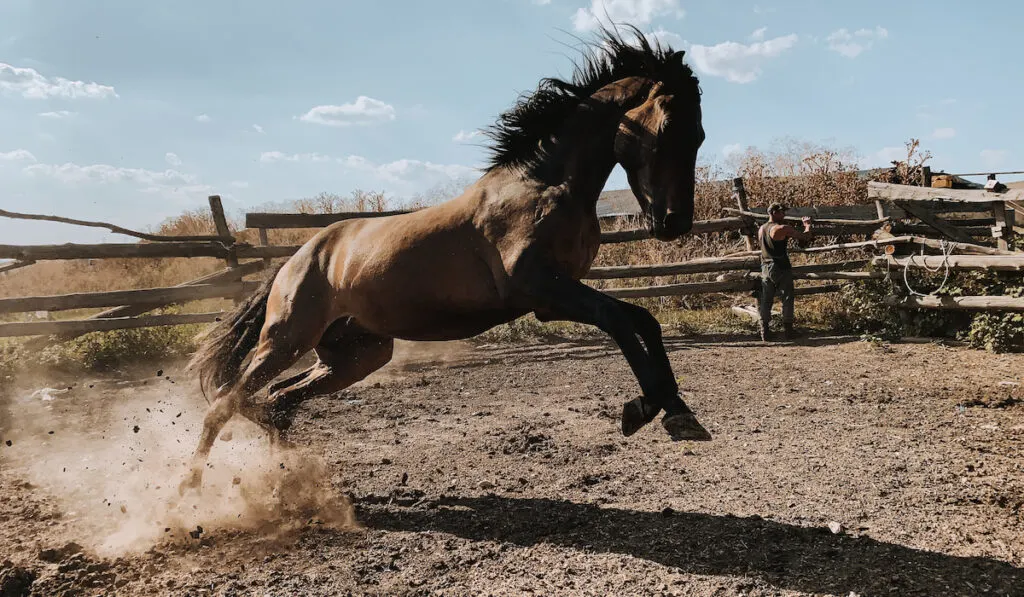
Reason 2: Requirements
If you are not in a position of owning your own farm, then, like many horse owners, you will need to board your horse. It can be almost impossible to find a boarding barn that accepts stallions. Outside of specific barns or operations, most boarding facilities require horses to be gelded.
This is so they are also assured of having no surprise pregnant mares (since horse breeding facilities have very unique requirements for health and safety) as well as the big reason: they don’t want hard to handle horses.
All horses should be able to be handled by all employees of a barn and they should be docile enough to not start testosterone bash fights with other horses.
Since stallions are naturally geared to establishing dominance and an alpha, a boarding barn full of competing, angsty, strong boy horses is a recipe for disaster.
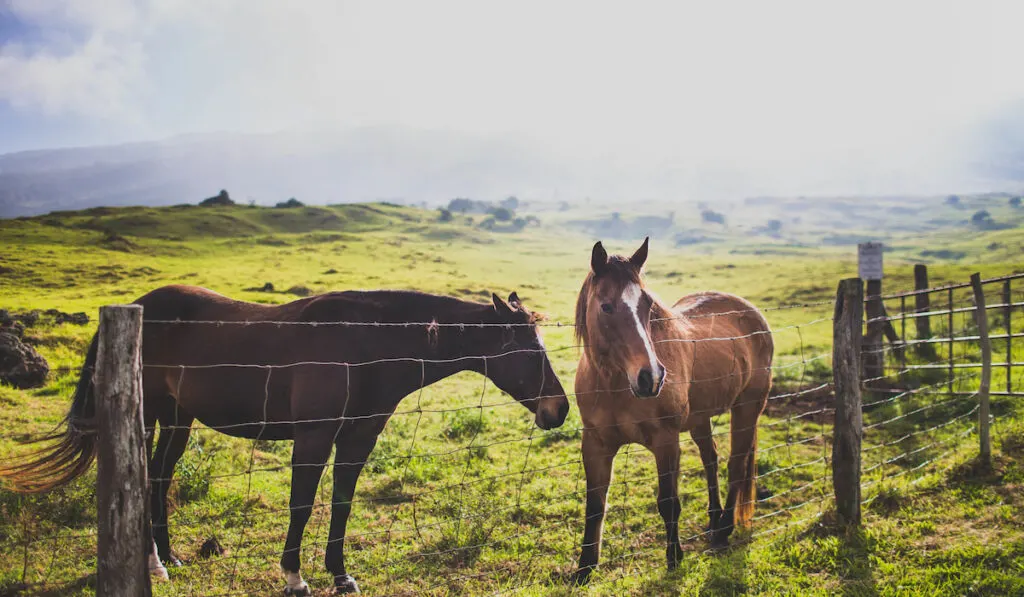
If you want shared accommodations for your horse, he should be gelded.
Reason 3: Health and Long Life
There is also some industry thought around gelding contributing to a longer and healthier life.
Certain reduction of particular cancer risks, as well as the fact that they will be less likely to engage in risky behavior.
Less fighting and less impulsive actions mean a horse will stay safer longer.
Reason 4: Riders & Rehoming
A stallion will always require a ride who is very experienced and equipped to handle a potentially dangerous horse. Not only does that mean that you run the risk of putting yourself in a dangerous situation when you ride but, in the event, the horse may ever need be rehomed, it can be much, much harder to find a buyer for a stallion.
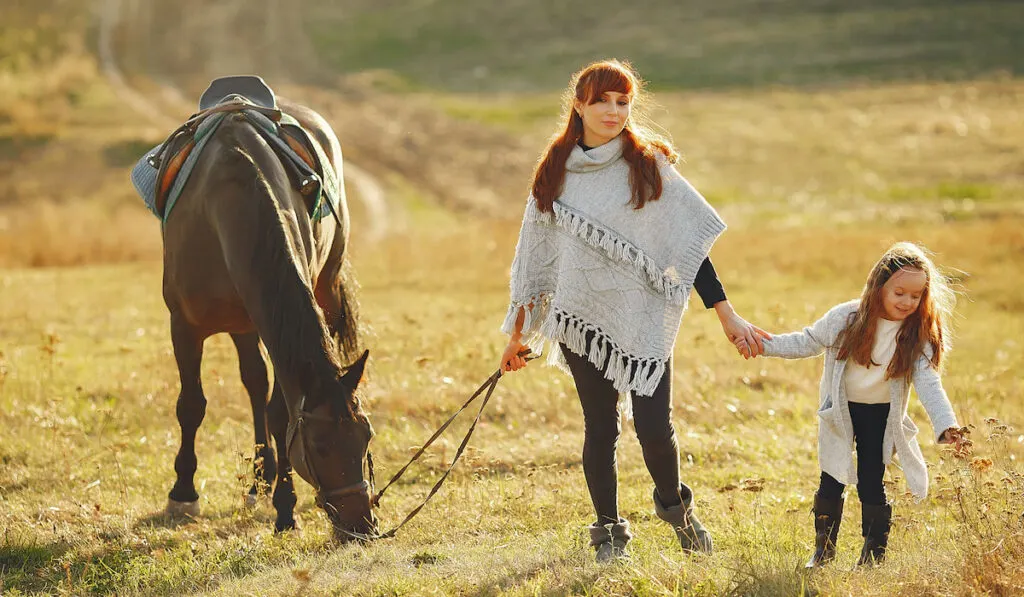
Most riders are used to riding geldings and will not be comfortable buying a horse that is known for flights of anger and a reluctance to listen. Plus, if they are boarders, they will not be able to keep them at their barn.
Reason 5: Mares
Another big reason to opt for gelding can come down to mixed-gender herds. (source) If you have a male horse and wish to have him live with a herd of mares, you will surely not want them to get the breeding on.
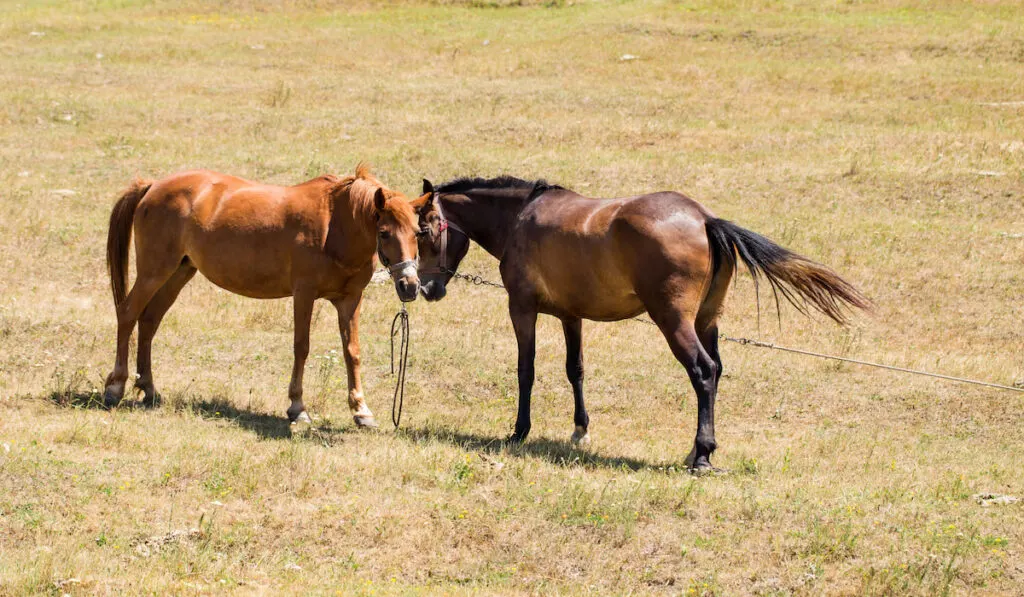
Also, that aggressive breeding male energy can cause all kinds of problems with the girls. So, for the sanity of all horses plus a desire to make sure you are not suddenly running a breeding operation, many boys are gelded so there is peaceful coexistence.
Gelding is a process that is a very natural part of horse ownership. Just like having a dog fixed, gelding is more often than not expected, and it goes a long way to having you and your horse both enjoying a longer, healthier, less stressful life together.


